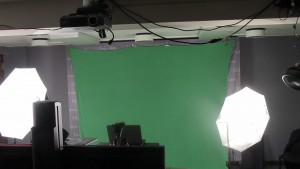Welcome back to my long-dormant teaching blog. I’ve been teaching a lot, just not blogging about it.
During summer 2016, however, I tried something quite different and thought that I would blog about it. With the superb assistance of a rising junior, Aleksandra Syniec, we have put together video mini-lectures for several of my classes. This is not a MOOC! The hard intellectual work is always done in concert with an instructor and peers. Some might call this “flipping the classroom,” but isn’t that what we always do anyway? Students read/watch/listen before class, and then we talk about it. I teach at a small liberal arts school, so talk-and-chalk is unnecessary. My role is not information transmission; my job is to teach critical thinking and communication.
My intent in our “Time Capsules” videos was to experiment with topics and forms, assess student learning, and ask students to evaluate the videos so that I know if the tremendous investment in time is worth it. My objectives were to 1) replicate the overview that students might get from textbooks (but I never assign textbooks; they just aren’t challenging enough for my students and they are unnecessarily costly), 2) free up time in class to discuss our primary and secondary sources, 3) provide some skill development for one of my students, and 4) allow students with certain learning challenges to start, stop, and rewatch rather than struggling with the manic pace of most of my in-class lectures. I’m certain that the videos will be helpful for #4. Aleks has already commented on how valuable it was to her as a student to collaborate on this project.
I’m not sure what to expect for the first two goals. Because these are very short videos, all under 15 minutes, I cannot possibly replicate the amount of information covered in a textbook chapter, but that is not my intention. I am covering smaller parts of one topic. For example, whereas a textbook might have a chapter on World War I, I have elected to just talk about the development of alliances on the video. In class we will cover propaganda, the technologies of war, home front and frontline, etc.
I expect that I will save time in class. For the industrial revolution video, for example, the video is about half the time as similar material I would cover in class. Unless students arrive in class with a lot of questions from the video, there should be a good time savings.
I will be adding new blog posts regularly in the coming weeks. Until then, check out our YouTube channel at: https://youtube.com/c/KarlQuallsTimeCapsules. Like us, and make sure to subscribe so that you get notices as we put up new videos. Follow this blog for updates, and please share with your friends and share your ideas. For ASEEES colleagues, contact me if you are interested in discussing presentations on alternative pedagogies.
